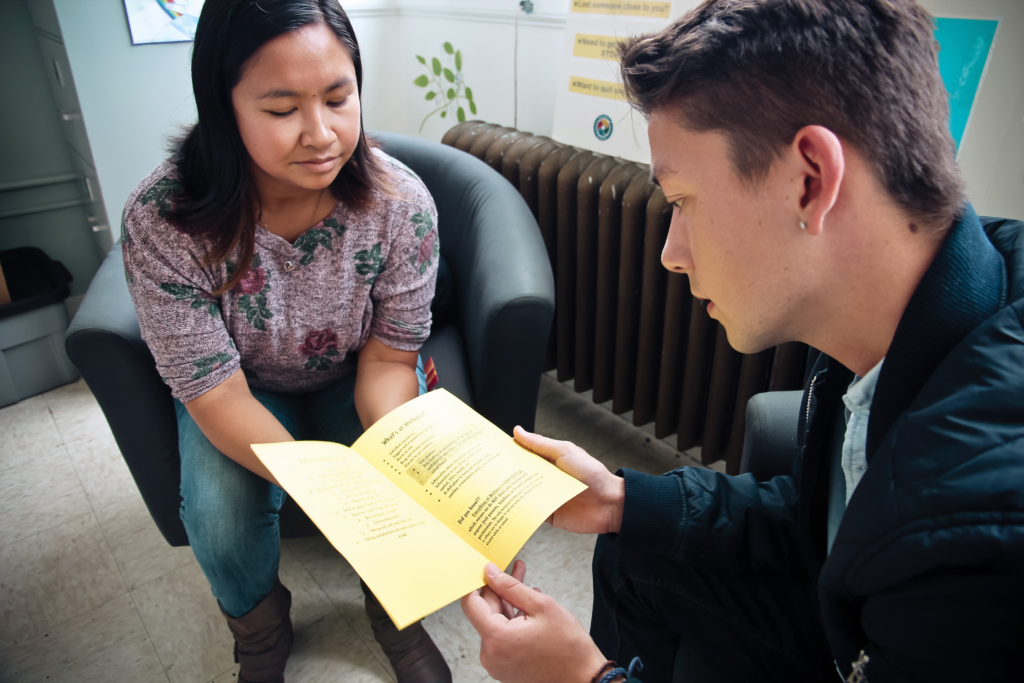Drug-free mental health treatment helps PTSD veterans 2023

Memorial Day commemorates military casualties. Many veterans battle with mental health. New medicine can mend war’s unseen scars. Ellen Eldridge, GPB.
Military veterans and those with PTSD benefit from a popular therapy.
EMDR treatment links eye movement to traumatic memories.
Francine Shapiro created drug-free therapy in the late 1980s to reduce stress from negative memories.
“Where we’re not experiencing the old emotions and sensations that go with it,” Taylor added. “So, it allows us to be informed by our memories instead of controlled by them.”

Licensed Associate Professional Counselor Marlo Taylor, who works in a private practice in Cherokee County, said EMDR treatment helps people recall properly.
Veterans’ trauma-related emotions make them good patients
The patient visualizes the trauma as the therapist controls their eye movement with a light or finger. Eye movements stimulate the brain bilaterally.
“And what happens is, through that bilateral stimulation, you’re activating both sides of the brain at the same time, allowing the client to reprocess a memory that was improperly stored,” she added. “The benefit for, especially in talking about veterans, is that you’re able to recover from trauma without having to talk at great length.”
Targeting the memory to process and detecting its ugliest image is the initial step of treatment.
“The client holds that image in mind along with the negative cognition that’s associated with it,” Taylor added. “‘I’m not good enough, I’m helpless, I’m stuck.'” They notice where they feel it.”
Taylor said some people’s trauma manifests as chest tightening, throat constriction, or clammy hands.
“We hold those three things together as we start the eye movements,” she explained.
Memory reprocessing might take more than an hour. Taylor said stopping doesn’t harm patients.
“We have little exercises that we can do to kind of box the memory and kind of put it on a mental shelf so that we can come back to it next time,” she added.
Taylor’s patient Jess Geyerman will undergo EMDR. His appointment followed this interview.
After five years as a combat engineer in the Marines, Geyerman was honorably discharged in 1997. He’s one of Georgia’s 8% military veterans.
He stated going to civilian life after such a controlled setting is hard.
“It was as hard for me as it was for, you know, about anybody, I suppose,” Geyerman added.
He sought mental health care after realizing he wasn’t coping well after leaving the Marines.
I can only fathom military veterans’ experiences. “It’s ten times worse,” he remarked.
He was accident-prone and lucky to have escaped battle.
Geyerman had treatment-resistant depression.
He tried ketamine and conversation therapy. Both were ineffective.
“I’m really interested in this EMDR,” he remarked. “And if it’s helpful in any way, shape, or form, that would be awesome because I react badly to drugs.”
Geyerman is happy that EMDR does not need talk therapy.
“It would definitely be more helpful to be, you know, to do something where you’re not expected to whole hog go right into, you know, whatever is the most traumatic or whatever is depressing you, period, and have to explain it to a virtual stranger,” he added. “And anything that can jumpstart that process would be absolutely amazing.”
